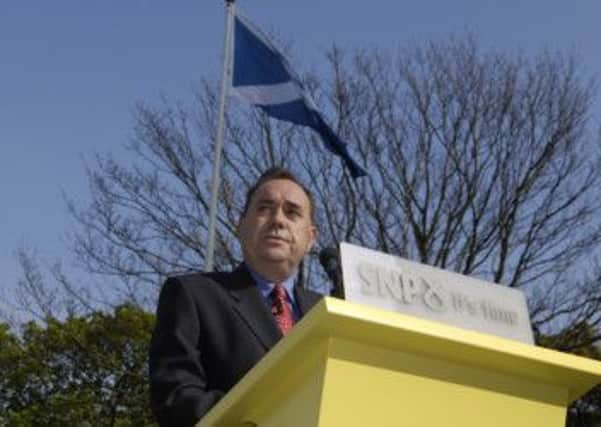Tom Peterkin: SNP may be victims of own success


To say that the Yes campaign is in a bit of lull would be an understatement, given the Ipsos MORI survey claiming that support for independence has fallen by three points since February and those against independence has increased by four points to 59 per cent over the same timescale.
Such figures must make grim reading for the Yes strategists who are failing to repel the No campaign’s attacks on issues that are as fundamental as EU membership and what would happen to our pensions and our currency.
Advertisement
Hide AdAdvertisement
Hide AdOn the currency, Salmond has hardly been helped by the Yes campaign chairman Dennis Canavan’s preference for Scotland to have its own currency – a proposal at odds with the SNP leader’s plans for a Sterling Zone.
On the broader issues, it is all very well for independence supporters to dismiss Better Together attacks as “scaremongering”. But some answers are required beyond the bland assertions that may satisfy the converted, but do nothing to convince the undecided who want to cast a vote based on something other than blind faith.
The polling may not look good for independence, but this battle is far from over. Yes Scotland can take succour from the fact that there are still circa 500 days to go and there is time to provide answers and some strong arguments for those who have yet to make their minds up. Given the size of the Yes campaign’s independence war chest, one can be sure that campaigning will be stepped up dramatically as the vote edges closer. However, it is difficult to escape the impression that the SNP and the Yes campaign have been caught on the hop. They are having to prepare for a referendum that even the most optimistic of their supporters could hardly have thought would materialise by 2014.
In a way, the SNP has become a victim of its own success in that the unlikely majority achieved in 2011 made a vote, for which they are not quite ready for, inevitable. As Scotland careers towards its most important date in 300 years, there is a feeling that the Yes campaign has failed to do its homework.
“Wait for the Scottish Government’s white paper on independence in November,” has been the holding line for those seeking answers on questions raised by independence.
The way things are going at the moment, however, one can imagine officials being forced to re-write drafts of the white paper to combat the tricky questions posed by yet another assault on the independence argument.
And the question of why more work has not already been done to combat those the SNP regards as naysayers remains. Much will depend on November’s white paper. Rarely in Scotland’s political history can so much have depended on a single document.